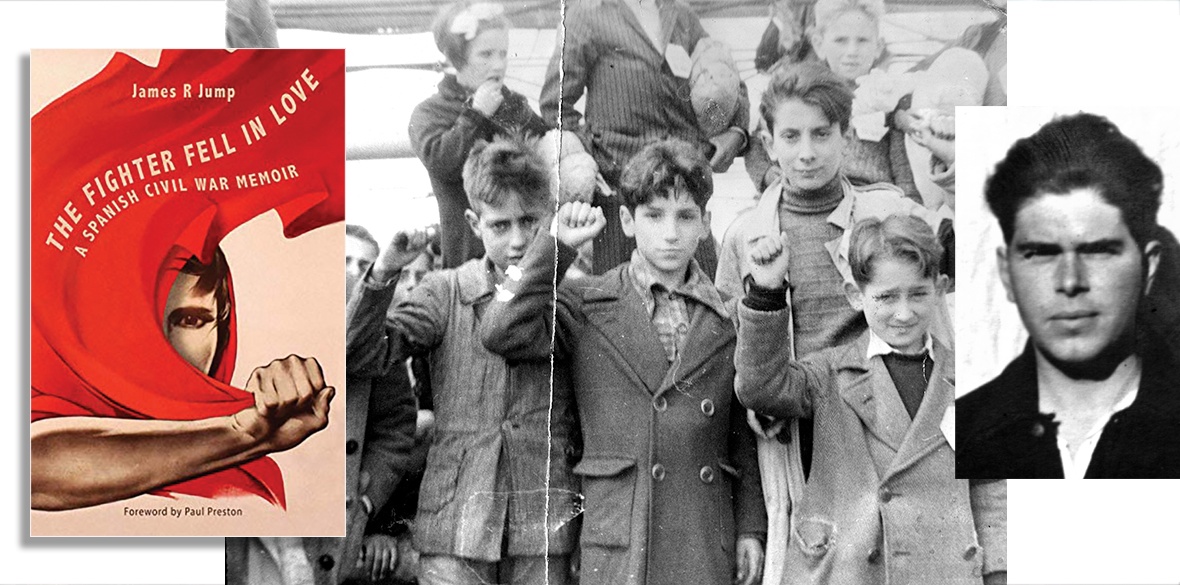This is the last article you can read this month
You can read more article this month
You can read more articles this month
Sorry your limit is up for this month
Reset on:
Please help support the Morning Star by subscribing here
The Fighter Who Fell in Love – A Spanish Civil War Memoir
By James R Jump
The Clapton Press £9.99
THERE have been numerous books about the Spanish Civil War but Jimmy Jump’s memoir is unique in that it is based on his meticulously kept diaries at the time.
There is no retrospective re-evaluation, imagined heroics or dimly recalled events; his memoir has all the ingredients of a drama unfolding, told with humility and honesty.
Jump was a budding journalist and would-be poet, so writes with a keen eye coupled with deeply held convictions. His memoir is laced with humorous anecdotes, tragic and tear-jerking moments, giving the reader a detailed picture of what life on the ground was like for these courageous men and women who were prepared to sacrifice their lives for the principles of justice and democracy in the struggle against fascism.
In his preface, Spanish Civil War authority Peter Preston says of the memoir: “His modesty and sensitivity glows throughout this highly readable, informative and often exciting memoir.”
Jump was born in Wallasey, to a comfortably off, conservative, religious family and grew up a convinced pacifist. While working as a cub reporter on the Worthing Herald, he learned of the horrors of Mussolini’s bombing of Abyssinia (today’s Ethiopia) after interviewing a member of Emperor Haile Selassie’s staff who was exiled in Worthing at the time.
He also reported the story of the nearly 4,000 refugee Basque children who came to Britain after fleeing the brutalities of Franco’s aerial onslaught, immemorably depicted in Picasso’s Guernica.
Jump joined the Worthing Labour Party’s anti-fascist committee, and only later, in Spain, the Communist Party. It cost him much soul searching to leave for Spain to join the International Brigade, but felt he had no option, despite having to leave his Spanish fiancee behind in Britain, looking after the Basque refugee children.
He reveals with unadorned honesty the fear he experiences after being under artillery bombardment for the first time and realises, he says, that he “would never make a real soldier,” coming to the conclusion that “I was only intellectually an anti-fascist ... all around me were men who had suffered poverty and unemployment ... these men were capable of hatred and revenge. To them fascism was an extension of capitalism, under which they had suffered hardship and humiliation.”
The book has memorable evocations of civilian life and the daily grind of military chores, as well as sympathetic sketches of the many characters who joined the brigades and crossed his path. He describes the hardships, the continual shortage of food and water, the lack of proper clothing or modern equipment and weaponry. And finally, he pays moving tribute to those of his comrades who died.
As it says on the inscription of the South Bank monument to the International Brigaders, paraphrasing a line from a Cecil Day-Lewis poem: “They went because their open eyes could see no other way.”
A moving tribute to all those who were prepared to sacrifice their lives for Republican Spain and at the same time a highly informative and riveting read.












